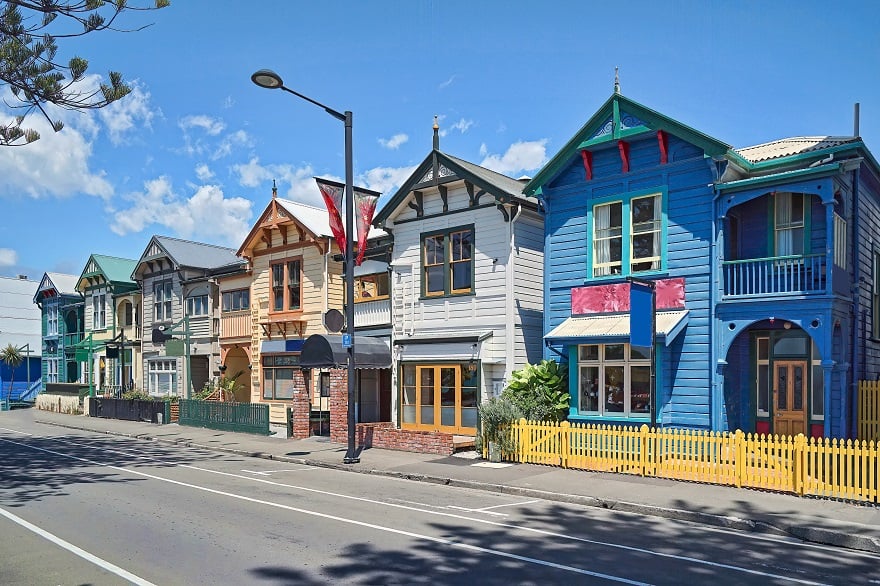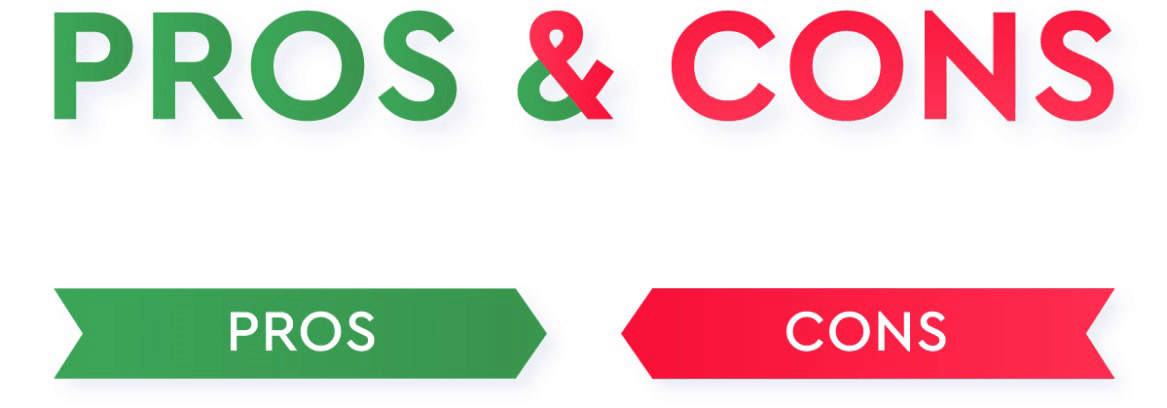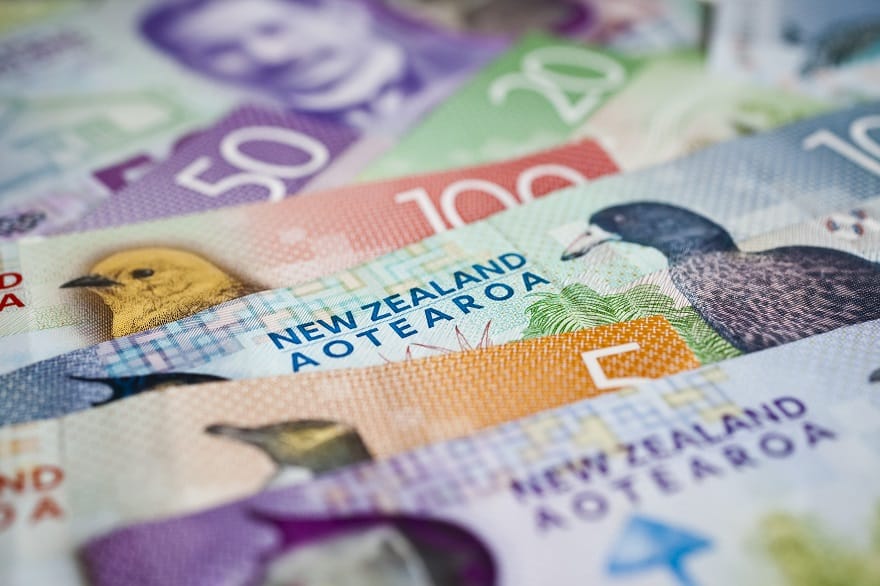Moving to New Zealand from Dubai in 2021 takes careful planning and attention to details and documentation. We provide everything you need to know before moving from Dubai to New Zealand. Start your move today by obtaining up to 6 competitive moving to New Zealand quotations FREE.
Whether it’s the breathtaking landscapes, a great work/life balance or the ever-friendly and warm Kiwi culture. In recent years the net migration to New Zealand has varied from around 50,000 - 65,000 people, which is high for a country of fewer than 5 million people. It is a rate much higher than the UK, Germany, the US or even Australia.
So why are so many choosing New Zealand as their new home and what are the challenges they face?
If you are planning on moving to New Zealand, you need to prepare your trip ahead of time; Housing in Auckland can be quite expensive despite the relatively low general cost of living. Public transportation is not the best and the climate may take some adjustment.
New Zealand is proactive in protecting its biodiversity, explaining why they place so many restrictions on plants, animals, and personal household goods being imported in the country. This is why you have to invest much of your time in knowing what these rules are.
If you intend to ship all your household goods to the county by sea or air, you need to familiarize yourself with the items that are not allowed to be brought in. You can expect some of your personal belongings to undergo quarantine.
We will cover this more specifically later on, along with the visa requirements, cost of living, and other crucial information to help you settle conveniently in the country. So, instead of worrying whether you’ll survive the move to New Zealand, we invite you to relax, read, and indulge.
Regardless of your feelings about moving to a new country, one thing holds when you move and live in New Zealand - feeling at home should not be too difficult. Locals are generally warm and friendly, making integration with the community pretty easy.
You can expect many opportunities for social interactions, which can be explained by the country’s fondness for social gatherings and an outdoor lifestyle.

The locals in New Zealand are frequently referred to as “Kiwis” - a term that has an endearing and pleasant connotation. It’s also an internationally recognized term that originated from an eponymous national species of flightless birds considered the country’s national symbol.
In terms of characters, the Kiwis characterize themselves as open yet respectful, and reserved but friendly. They are also helpful, genuine, and have trouble saying no directly. This explains why you might often hear them say “not really” or “not sure” when they want to decline or oppose.
When it comes to plans and invitations, Kiwis are also relaxed. This means that even if they agree to come over to your party, their yes is not guaranteed that they will be there. Don’t take this personally, though. The Kiwis just don’t want to stress themselves about these things. They also like to walk on the left lane of the sidewalk.
The Kiwis are also private, even if they have an outgoing nature. They don’t like to share information about their income, marital status, or weight. Those who work together in the same office also wanted to set boundaries. They like to keep their private lives separate.
They also appreciate people respecting their personal space. As an expat working in the same office as the Kiwis, you need to make sure that you always maintain a healthy distance. Otherwise, you may make them feel uncomfortable.

First and foremost, the Kiwis like to greet one another with a smile or a handshake. Smiling is also typical and essential, which explains why they too often smile even to strangers. When meeting a local, use their title and surname. After your first meeting, you can expect them to call you by your first name.
When socializing with the Kiwis, sharing food is a good idea as this sets a relaxed atmosphere. Sharing food can be done during barbecues, picnics, or during hāngis - a traditional Māori food cooked in earth ovens.
When you are invited to an event, make sure to bring a small gift or bottle of wine. The host may deem this unnecessary, but it’s a good gesture. Praying before eating is also common among the Kiwis, and they call this practice as karakia. And the New Zealanders also love nature, which explains their overall cheerful disposition towards nature and its care and preservation.
Just like in other social events, food is also a considerable part of the workplace. It’s very common to have morning and afternoon teas at work, same with birthdays and other team parties. Everyone in the office is expected to bring food that can be shared with the team, and this is what the Kiwis means when they ask their workmates to bring a plate. You can also expect to get an invitation to socialize with workmates on Friday nights. In these events, family members are not present.
Negotiating can take time, mainly when you only rely on hard-sales tactics. These tactics are not very welcome among the Kiwis. They would appreciate you more if you can convince them by providing prices and concrete figures. Strictly no bargaining since they expect always to get value for their money.
Whilst not as expensive as places like Switzerland and Scandinavia, New Zealand is still a relatively expensive country to live - similar to the UK or Germany. A family with four members is expected to spend somewhere between 6,000 to 8,000 NZD monthly. The reason why it’s so expensive to live in this country is simply that it’s a remote island that relies on imported goods. With fewer competitors and high import taxes, you can expect the prices to skyrocket.
As mentioned above, life and expenses in New Zealand skew on the expensive side, with a cost comparable to living in Northern Europe and the U.S.
If you are relocating to NZ to work, your choice of areas to live will most likely include Wellington, Christchurch, and Auckland. These areas make up around two-thirds of New Zealand’s gross national product. Hence, it offers a lot of job opportunities for ex-pats like you. The downside of living in these parts of New Zealand is that the cost of living is higher by 50% compared to areas in the countryside and smaller towns.
The average salary in the country is at NZ$77,000 per year. You can expect your monthly expenses to be divided into the following - NZ$550,000 to NZ$862,000 for buying a house or NZ$2,100 to NZ$3,300 per month for rent, NZ$25,000 to NZ$35,000 for car, NZ$2,000 for food for two persons per month, NZ$2.21/liter for gasoline, NZ$73 for internet connection per month, and NZ$253 to NZ$510 for such utilities as electricity, gas heating, and water.
Considering the country’s high rent prices, especially if you live in a city center, you should expect your rent or mortgage to make up the most significant part of your living expenses.
Since rent will eat a massive chunk of your monthly income, you can significantly lower your monthly expenses by negotiating a longer lease at a lesser monthly fee. You can also find other ex-pats to share an apartment with you. Splitting the rent into two or three people is better than paying it all alone. Plus, you can also choose to settle in less expensive cities in NZ.

When it comes to the cheapest cities in New Zealand, you can choose between Hamilton and Dunedin. The good thing is though these cities are inexpensive, they are, in fact, big cities. They are also considered education and economic hubs and are also considered as popular destinations for ex-pats. Compared to Christchurch, Wellington, and Auckland, the rent prices in these areas are way lower. But if you’re looking for low housing prices, go for Rotorua or New Plymouth.
When it comes to the most expensive cities, that would be Christchurch, Wellington, and Auckland. Here, both leisure and work opportunities are vastly available, making these areas very attractive to ex-pats and locals. Recently, the cost of living in Queenstown also rose to the level of these three big cities.
The cost of education in New Zealand varies depending on the school type. Public schools for primary and secondary levels are free. Parents are only required to pay for meals, books, and uniforms. Parents are also sometimes asked to give donations. The government subsidizes hourly preschool and daycare costs up to six hours a day. If you want to enrol your kids in a private kindergarten, the cost would be around 1,000 NZD per month. The cost of international schools can go as high as 20,000 NZD per year.
When it comes to healthcare, the country’s cost of medical care is subsidized by the state. The residents are eligible to free public healthcare. The said healthcare covers all medical expenses except for adult dental care. Expats choose to get supplemental private health insurance in addition to their general health coverage. Basic dental consultation can cost you around 65 NZD.
Yes, it’s an excellent decision to invest in a car when you’re living in New Zealand. The main reason for the same is that the country’s public transportation is not extensive, especially on the national level. The national rail system is not only costly, but it’s also slow. Thus, people living here mostly rely on their cars to move from one city to another.

OF LIVING IN NZ
If you’re moving to New Zealand, make sure to prepare the following documents:
In addition to the above, you might also be required to present additional permits like shipping permit to bring or import firearms, shipping arrival papers like Arrival Advice, airway bill, or bill of lading, medical devices and Medicine Safety Authority permit, and the Convention on International Trade in Endangered Species of Wild Fauna and Flora permit. You have to email all of the applicable requirements before you travel and expect an MPI-issued clearance once approved.
For a more in-depth look at documentation please check the International Association of Movers.
Many visa types can help you start a new life in New Zealand. The specific visa will depend on factors such as how long do you intend to stay in the country and what kind of job offer you have.
Take note that some visas are more expensive than others. If you’re applying for an Entrepreneur work visa, for example, expect that this is more costly than others since you’ll be required to pay the immigration fee.
The good news is the same process of online application is followed for almost all visas. Some of the requirements are similar, too. You just need to be mindful of the application timeframe as this is very short, with vacancies filling up within the first few days after they’re opened.
To enter New Zealand, you must be below 56 years old, must be able to meet the character, health, and English language proficiency requirements, and also be able to get at least 100 points in their Points System to register one’s Expression of Interest successfully.
Once you qualify all these requirements, you’ll be issued either a residence visa, Resident permit, or work permit. The residence visa will allow you to enter the country, and this must be used within 12 months after the official date of the issue. This can neither be extended nor renewed.
If you fail to use it within the allotted time frame, you’ll need to reapply for residence again. On the other hand, the Resident permit will be issued in your name after arrival to the country. This is proof that you’re allowed to reside in New Zealand permanently. Lastly, if you are given a work permit, you will be allowed to stay in the country for five years. After its expiration, you can apply for a three-year extension to make your stay in the state legal.
Here are some of the most common visas to help you enter New Zealand:

There are plenty of options to help you manage your finances when you’re in New Zealand. You can go to international, national, or online banking. You would be glad to know that the country also offers a simplified taxing system that won’t require you to file a tax return at all.
Yes, opening a bank account for foreign nationals is easy in New Zealand. All you have to possess is a visa allowing you to stay in the country for a certain period for schooling, living, or working.
To open a bank account in New Zealand, you need to present the following requirements:
Once you’re done applying, wait for ten banking days before your account can be processed and activated.
Here are the top five banks for ex-pats living and working in New Zealand:
The country’s tax system is more simplified than in other countries. It’s widely based on Goods and Services Tax GST) and personal income tax. They don’t have healthcare, general capital gains, social security, payroll, state, local, and inheritance taxes
You will not be required to file an annual tax return in the country. But if you do, you can file the same with the Inland Revenue Department (IRD). The said office will first notify you to file the said document. You will only have to pay for a personal tax return if you earn from an overseas gig.
The country’s tax year starts from the first day of April of the current year and ends on the last day of March the following year. They also have progressive tax rates, which means that the bigger you earn, the more taxes you will have to pay.
If you’re renting a house or apartment in New Zealand, the light, water, and gas bills are usually in the landlord’s name. Hence, it’s a common practice for ex-pats to settle the said bills through them. But if you have your own house, auto-debiting your accounts is the best and soundest option. You can also pay your bills through your local NZ PostShop. There are hundreds of outlets nationwide, so finding one in your area won’t be a hassle.
The climate in the country wildly varies. In the far north, you can expect subtropical summer weather. You can expect winter weather in the southern islands that can go as low as -10°C (14°F).
Other parts of the country are situated near the coast, meaning they expect milder temperatures throughout the year. As you travel south, you can expect the country’s temperature to decrease significantly. January and February are considered the warmest months, while July is regarded as the coldest.
80%
7
21oC/70oF
7oC/45oF
-4oC/25oF
-17oC/1oF
The average monthly rental cost for a single-bedroom apartment within the center’s heart could cost up to NZ$850. For single-bedroom apartments outside the big cities, you can expect to pay NZ$800 per month. If you want bigger, three-bedroom apartments, those in the town cost NZ$1,500 per month. Outside the city, the same apartment size will cost you NZ$1,300 per month.
Yes, ex-pats can generally own properties in New Zealand. The good news is that the entire buying a house process is not only well-organized but also well-regulated. This means that you don’t have to worry about getting overpriced offers. You can own property within three weeks.
You also don’t have to worry about last-minute bidders snatching your stuff away. For as long as you’ve made an official bid, the house is yours. As for the price, you can expect to pay somewhere between NZ$560,000 to 600,000 for a standard-size home.

New Zealand’s healthcare system is accessible and affordable. Through the country’s public healthcare system, any citizen or permanent Resident can receive free services for prescriptions, medical treatments, x-rays, laboratory tests done in public clinics or hospitals, pregnant women service charges, dental care until 18 years old, women’s breast exam for those 50 years old and above, General Practitioner (GP) referral visit, treatment options for chronic conditions, a subsidized prescription for children who are six years old and under, and pregnant woman’s maternity
As far as insurance policies are concerned, there are two types of systems considered in New Zealand: the comprehensive policy and other policies. The comprehensive policy covers all kinds of ordinary medical expenses, like family doctor consultation and prescriptions. Other systems may include dental services, laboratory testing, non-urgent surgery, and specialist care.
Before the '80s, the country adopted a full public healthcare system. After that, they subscribed to a mixed public and private scheme, which meant that their healthcare is partly subsidized by the government, and partially provided by private medical institutions.
New Zealand’s vast hospital networks treat locals, permanent residents, and work visas for free. If your work visa allows you to stay in the country for at least two years, you can take advantage of their public healthcare. If the amount of time you legally spent in the country and your work visa duration also total to two years, you can also apply for public healthcare.
Non-residents, on the other hand, can only take advantage of the healthcare services if they pay for it. This is why non-residents are advised to secure medical insurance from their home country if they’re not eligible for NZ healthcare.
There are currently three medical care levels adapted in the country -- primary care, secondary care, and tertiary care. Primary care includes allied health, pharmacists, dentists, and family doctors. Allied care includes counseling, podiatrists, physiotherapists, and other types of medical services. Practice nurses and family doctors are also available in Medical Centers or Primary Health Organizations. These are centers that work independently. They are also your first point of contact the moment you need emergency care.
When your kids move with you to New Zealand, you don’t have to worry about giving them quality education. For one, the country is one of the top 20 OECD countries for having an excellent education system. The country is also home to eight universities that are all part of the world’s top 500 universities.
The school education system in New Zealand is divided into these four levels:
There are three types of educational institutions in New Zealand: public schools or state schools, private schools, and state-integrated schools. The most common schooling option for the residents of New Zealand is state schools. This is free for both the country’s citizens and permanent residents.
On the other hand, private schools are funded by school fees, but in some cases, the government can offer subsidies, too. The last type of schooling option is mostly made of Catholic schools funded by the state. For your children to enrol in any of these institutions, you need to submit your child’s proof of citizenship and age like passport, birth certificate, residency document or ID, his certificate of immunization, information on his medication, allergies, and other medical conditions, emergency contacts, and name of his physician and his contact information.
If you want a cheaper alternative to international schools, you can always enrol your kids in the public and state-operated schools in the country. You don’t have to worry about the quality of education because the public universities, primary, and secondary schools in this country are among the best in the world.

Moving to a different country can be daunting, and if you don’t get on top of things it can become quite stressful. Moving to New Zealand presents its own set of unique challenges, but if you follow the guidelines we have provided, we feel certain you can experience a smooth relocation to New Zealand.
You can start the ball rolling by completing our simple form, allowing international movers to get started on your quotation, today!
Note: This document is provided as a guide for people moving to New Zealand and for information purposes only. Customs regulations can and do change at any time, usually without notice. Your mover will provide you with more information.
